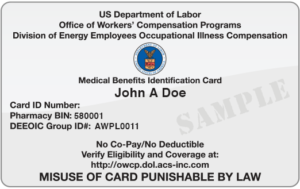Managing the side effects of medications can be difficult and complicated, especially when you are an older adult on a regimen that includes multiple different drugs for different health problems. Your doctor or nurse can provide you with information about your medications, but you may need more help. For EEOICPA and RECA, free home healthcare services may be able to provide you with assistance when it comes to handling and managing side effects of the drugs you take. Regardless of whether you have healthcare services in your home, it is important to understand ways to deal with medication side effects. The following are some frequently asked questions about managing the side effects of the drugs you are taking for different health problems.
What Should I Expect in Terms of Side Effects from My Medications?
One of the first questions you should ask when figuring out how to manage the side effects your medications is what side effects you should expect from each drug. According to a WebMD article, “side effects can happen with almost any medicine,” and it is important to be prepared. Some of the most common side effects for a wide variety of medications include stomach issues such as nausea, diarrhea, and constipation. These side effects typically occur because the medications “pass through your digestive system.”
Other potential side effects of common medications, such as blood pressure medicines and diabetes drugs, including dizziness, drowsiness, depression, irritability, weight gain, sleep disruption, and ability or desire for sex.
How Long Do Side Effects Last?
Sometimes side effects only last for a short time. Once your body adjusts to the new medication, side effects may cease. Depending upon the type of medication, this could be a period of days, weeks, and sometimes longer.
Should I Talk to My Doctor About Managing Side Effects of My Medications?
If you are experiencing any side effects, you should always speak with your doctor about them. It may be possible to manage side effects by switching to a new medication or changing the dose of the medication you currently take. Your doctor can also tell you which side effects could be a sign of something more serious, as well as ways to prevent certain side effects that you may be experiencing.
In some cases, side effects may result from drug interactions. The best way to manage side effects that result from drug interactions is to make sure that your doctor knows about every medicine you currently are using, including over-the-counter drugs and supplements.
Can I Stop Taking One or More of My Medications If I Have Continuing Side Effects?
The worst thing to do to manage the side-effects of a drug is to simply stop taking it. You should never stop taking a medicine you have been prescribed without speaking to your doctor first. Simply ceasing to take a drug could have serious side effects, and if the medicine is helping to treat a serious condition (such as high blood pressure), you could end up having a stroke or another serious medical complication.
Seek Help from a Home Healthcare Provider
Managing side effects of your medications means learning about potential side effects ahead of time and talking to your doctor when side effects occur. If you are having difficulty managing your medications and their side effects, a home healthcare assistant may be able to provide the help you need. To learn more about your eligibility for certain healthcare services, you should get in touch with United Energy Workers Healthcare and Four Corners Health Care today.
Who We Serve
Do you have this card?

If you already have this card, then you are already approved to receive no-cost medical benefits! Call us to get started today.
In order to be eligible for EEOICPA/RECA benefits, an individual must have been employed at a covered Department of Energy facility, an approved atomic weapons facility, or at a permitted beryllium vendor. An individual must also have one of the covered conditions as a result of exposure to radiation, beryllium, or silica while employed at an accepted facility. In addition, uranium miners, millers, and ore transporters are eligible for benefits if they develop an illness as a result of exposure to toxic substances (such as radiation, chemicals, solvents, acids, and metals) and worked at a facility covered under RECA. Eligibility requirements vary by location and condition.